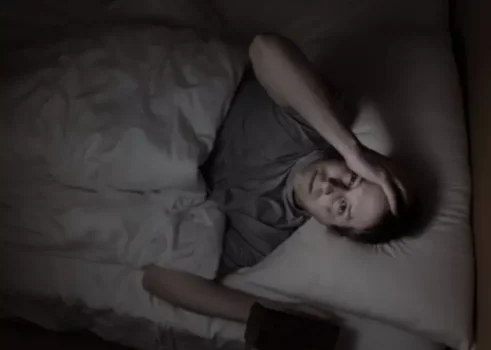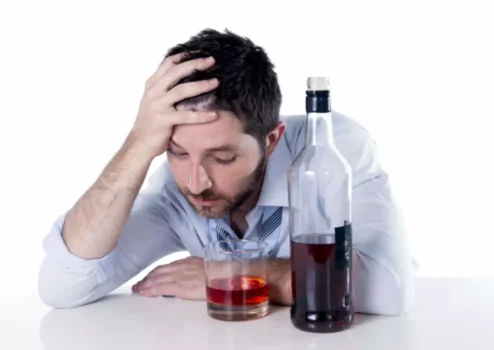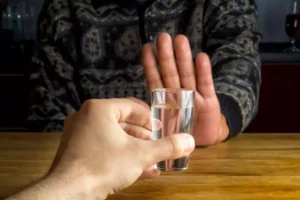
This phenomenon may suggest a normalization of the acrophase of REM sleep with sobriety and may also account for increased REM % during early recovery. In a frequently cited study, decreased REM sleep latency and increased REM % was seen at 27 months into recovery (Drummond et al., 1998). These findings contrast with lack of REM sleep abnormalities reported in 2 other studies, as compared to healthy control subjects (Williams and Rundell, 1981, Schiavi et al., 1995). Alcohol is one of the most commonly used psychoactive substances in the community. Nonetheless, alcohol disrupts sleep through multiple mechanisms, such as disrupting electrophysiologic sleep architecture, triggering insomnia, and contributing to abnormalities of circadian rhythms and short sleep duration (SSD) in cross-sectional studies.
Causes and risk factors
- Animal data indicate that administration of GABAergic antagonists lead toincreased REM (Sanford et al. 2003; Xi, Morales, and Chase 2001, 1999).
- Consuming two servings of alcohol per day for men and one serving for women can reduce sleep quality by 9.3%.
- Take our short alcohol quiz to learn where you fall on the drinking spectrum and if you might benefit from quitting or cutting back on alcohol.
- Mild alcohol withdrawal symptoms might include headaches and loss of appetite.
- Lindsay Modglin is a nurse and professional writer who regularly writes about complex medical topics, as well as travel and the great outdoors.
Consuming alcohol and experiencing restricted sleep reduces alertness during the day. It can have a relaxing effect, but research shows that too much alcohol can lead to a lack of sleep or insomnia. Alcohol can increase the quantity of non-REM sleep during the first half of the night, but it decreases REM sleep in the second half. Your daily habits and environment can significantly impact the quality of your sleep.
0 Familial predisposition for alcoholism effects on sleep?
There are a ton of options for changing your drinking routine, whether that means cutting down a little or abstaining completely. If a glass of wine has been your go-to after-work drink for years, it’s going to be hard to nix the habit without finding an enjoyable alternative. Experiment with different options until you find one that feels right; some options include tea, sparkling water, or even a good mocktail.
Alcohol and Insomnia: How Drinking Actually Hurts Your Sleep
- The repeated collection of alcohol and sleep data over such a long period is unique.
- “Kids who have anxiety who are also using alcohol, if they start to use that alcohol to cope with negative feelings, that can set up a pretty negative path for them, and they are more likely to use alcohol problematically,” Bilsky said.
- More research is needed to prove poor sleep patterns can increase the likelihood of alcohol misuse, but this work is a start, Bilsky said.
- People who go to bed with alcohol in their system may be more likely to wake early in the morning and not be able to fall back to sleep, another consequence of the rebound effect.
- Understanding these complex relationships can help parents, mentors and health care providers better treat teens.
This may help many fall asleep on occasion; however, the use of alcohol, even a single serving, will make it more difficult for someone to reach deep sleep, also known as REM sleep. Without deep sleep, our mind and body are unable to do what’s necessary to prepare for the next day. Alcohol is a diuretic, meaning it increases urine production, leading to more frequent bathroom trips throughout the night and fragmented sleep. The diuretic effects of alcohol increase as your blood alcohol concentration rises, meaning the more you drink, the more you’ll wake up at night to pee. Alcohol’s diuretic effects can also contribute to dehydration, as your body expels fluids faster than you replace them. Drinking alcohol before bed can cause heavier snoring and increase the risk of sleep apnea by 25%.
How Does Alcohol Affect Sleep?
As many as three quarters of people with alcohol dependence experience insomnia symptoms when they drink. Trusted Source UpToDateMore than 2 million healthcare providers around the world choose UpToDate to help make appropriate care decisions and drive better health outcomes. UpToDate delivers evidence-based clinical decision support that is clear, actionable, and rich with real-world insights.View Source Insomnia is also very common in people who are in withdrawal or early recovery from alcohol addiction. In addition to altering your sleep architecture, alcohol can disrupt your sleep by interfering with contributing to sleep disorders and interfering with circadian rhythms. Other primary sleep disorders may occur more commonly with AD and present as insomnia in the clinical setting. These include obstructive sleep apnea (OSA), periodic limb movement disorder (PLMD), and delayed phase sleep disorder (DSPD).
2 Neurochemistry of alcoholism effects

If someone is experiencing alcohol withdrawal symptoms, including insomnia, treatment is needed. A 2014 study suggested that cognitive behavioral therapy may help reduce sleep problems, depression and alcoholism. However, researchers said https://ecosoberhouse.com/ that the effectiveness of CBT among people experiencing alcohol addiction and sleep disturbances remains relatively inconclusive. One study found that tetrabamate and diazepam can help improve sleep among people undergoing alcohol detox.

Alcohol interferes with these circadian rhythms regulating the liver, and can contribute to compromised liver function, liver toxicity, and disease. Sleep deprivation due to alcohol consumption can exacerbate performance impairment and daytime sleepiness. For people who snore or who have sleep apnea—a disorder that causes repeated pauses in breathing during sleep—drinking alcohol tends to aggravate symptoms. The typical sleep cycle begins with three non-rapid eye movement (NREM) stages of sleep and ends with rapid eye movement (REM). During sleep, the body cycles through all of these stages every 90 to 120 minutes, with NREM sleep dominating the first part of the night and REM increasing during the second part of the night.
This condition may be secondary to a hyperexcitable state of the central nervous system (Begleiter and Porjesz, 1979) and has been called protracted abstinence, protracted withdrawal phase, or late withdrawal symptoms (Heilig et al., 2010). Its main features include, mood disturbance, alcohol craving and sleep related disturbances, and they may persist for about 5 weeks (Alling et al., 1982). Another ramification of this growing body of knowledge is the revision in the diagnostic criteria for sleep disorders. These updated criteria are seen in the third edition of the International Classification of Sleep Disorders (ICSD-3) (AASM, 2014) and the fifth edition of the Diagnostic and Statistical Manual for Psychiatric disorders (DSM-5) (APA, 2013). In this manuscript we will adhere to the ICSD-3 classification for sleep disorders. Alcohol is the most common sleep aid—at least 20 percent of American adults rely on it for help falling asleep.
- In addition to altering your sleep architecture, alcohol can disrupt your sleep by interfering with contributing to sleep disorders and interfering with circadian rhythms.
- Alcohol is a diuretic, meaning it increases urine production, leading to more frequent bathroom trips throughout the night and fragmented sleep.
- Alcohol interferes with these circadian rhythms regulating the liver, and can contribute to compromised liver function, liver toxicity, and disease.
- In addition, since poor sleep can negatively affect one’s health, the benefits of a restful night go beyond feeling alert in the morning.
- These can happen during arousals from rapid eye movement (REM) sleep or non-rapid eye movement (NREM) sleep.
- Without deep sleep, our mind and body are unable to do what’s necessary to prepare for the next day.
2. Alcohol’s association with sleep disorders
People who get good-quality sleep typically have higher cortisol levels in the morning that decline throughout the day, reaching their lowest level at bedtime. Research shows that people with consistently poor sleep quality maintain high cortisol levels throughout the day, including at bedtime. If you want to understand why alcohol has a contradictory effect on your sleep cycle, it can alcohol insomnia help to think about things in terms of sleep stages. Drinking alcohol reduces your sleep onset latency (SOL), or the amount of time it takes to fall asleep. This can seem like a good thing at first, but it doesn’t paint the whole picture of what happens to your body throughout the night. Abnormalities in the timing of REM sleep wouldappear to last longer into the abstinence period.
